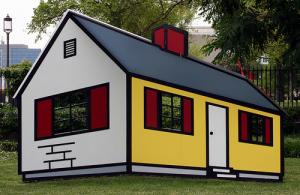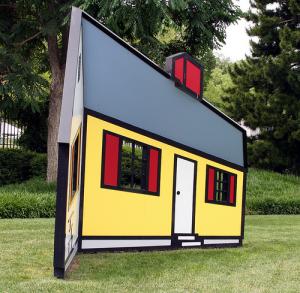
Do You Think About All Perspectives?
How are engineers perceived by different age groups in the U.S.?
This was the topic of a
2007 report from the Bemporad Baranowski Marketing Group (BBMG) commissioned by the National Academy of Engineering. The goal of the study was to develop and test the effectiveness of a small number of messages for enhancing public understanding of engineers and engineering.
The recommended messages were:
"Engineers make a world of difference."
"Engineers are creative problem-solvers."
"Engineers help shape the future."
"Engineering is essential to our health, happiness and safety."
The authors surveyed hundreds of children (9-11 years old), teens (14-17) and adults (including professional engineers). Here are some of their results:
-
Engineers see themselves as "book-smart", "socially challenged" and "myopic" even though only 14% of the teens and 6% of the adults surveyed agree.
- According to a Harris interactive Poll in 2006, engineers fared 10th in the ranking of "most prestigious professions" The ranking included:
 Do You Challenge Your Perceptions?
Do You Challenge Your Perceptions?
- Firefighter
- Doctor
- Nurse
- Scientist
- Teacher
- Military Officer
- Police Officer
- Priest
- Farmer
- Engineer
- Member of Congress
- Children and teens are concerned that engineers mostly sit behind the desk and do little field work. In the words of a teenager "Seems like a lot of engineers sit behind a desk and don't do much fieldwork...It's a desk job. I'd beat my head against the wall if I had to do that." However, both children and teens were positive about engineering when it was explained to them (e.g. they would be able to invent the next X-box).
- Fewer informed adults than teens think that engineers are inventors (33% vs. 41%), entrepreneurs (18% vs. 11%) and start new companies (7 vs. 14%).
More than $400 MM was spent in 2002 in the U.S. to promote engineering through such efforts as
National Engineers Week and assorted local outreach groups. Most of the effort was geared towards getting children and teens interested in engineering to ensure a strong pipeline of talent. It appears that there is still much work to be done.
The prospect of working at a desk is apparently unpleasant to children and teenagers unless it is for a very worthy goal. It also seems that there is some disillusionment with engineers among adults, which points to a potential outreach target, adults.
So what to do?
Should we talk to our neighbors (and their children) about engineering?
Or come up with a popular TV series about engineers?
View Poll
 Do You Think About All Perspectives?
How are engineers perceived by different age groups in the U.S.?
This was the topic of a 2007 report from the Bemporad Baranowski Marketing Group (BBMG) commissioned by the National Academy of Engineering. The goal of the study was to develop and test the effectiveness of a small number of messages for enhancing public understanding of engineers and engineering.
The recommended messages were:
Do You Think About All Perspectives?
How are engineers perceived by different age groups in the U.S.?
This was the topic of a 2007 report from the Bemporad Baranowski Marketing Group (BBMG) commissioned by the National Academy of Engineering. The goal of the study was to develop and test the effectiveness of a small number of messages for enhancing public understanding of engineers and engineering.
The recommended messages were:
 Do You Challenge Your Perceptions?
Do You Challenge Your Perceptions?








